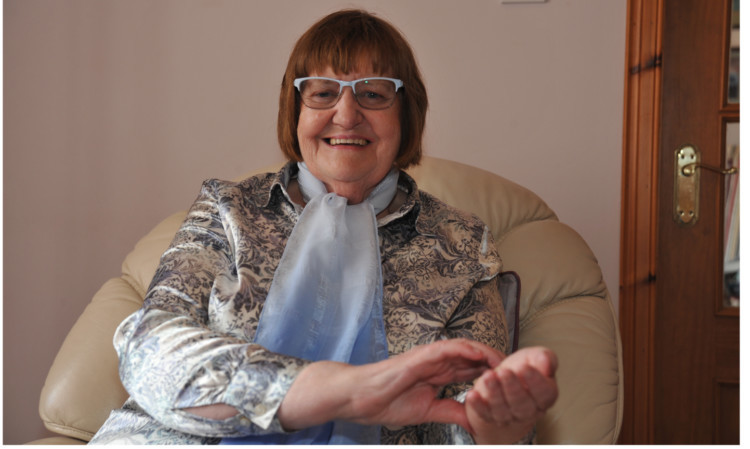A simple trip to the supermarket saved the life of a grateful Fife pensioner.
While picking up her groceries in her local Asda, Anne Clayton stopped to check out a 60-second pulse test being run by NHS Fife.
And that minute saved Miss Clayton, 76, from having a stroke.
“It saved my life, no doubt about it,” said the former nurse from Kingseat.
Miss Clayton was feeling healthy before the quick test, with no symptoms of serious illness.
“I would have said there was nothing wrong with me, apart from getting a bit older and tired.”
The checks, including blood pressure monitoring, are being carried out as part of a new NHS Fife campaign, Check Your Pulse Prevent A Stroke.
Miss Clayton, who has now seen her GP and will see a cardiologist, admitted the results, at first, had been very worrying.
“I had slightly higher than normal blood pressure, but at my age it is not too bad. But after I was told I thought that’s it, I am dying now, that was my first reaction.
“It was a wee bit of a shock, that’s for sure.”
While many people know about the dangers of high blood pressure, few are aware that their pulse can divulge a sinister secret, even if they have no other symptoms of ill health at all.
As a retired district nurse, Miss Clayton has much more invaluable medical knowledge than the average person. But even she was unaware an inconsistent pulse could be a danger sign of being at risk.
One of the more common causes of stroke is atrial fibrillation, in layman’s terms a change in heart rhythm which causes it to become irregular. It is the cause of around 14% of all strokes.
As part of the campaign, atrial fibrillation nurse Arlene Cobban is setting up shop in venues ranging from supermarkets to leisure centres to do the simple but potentially life saving test.
Already she has identified four people with an irregular pulse who had absolutely no symptoms. They have now all been referred to their GP.
Miss Clayton, who has spent much of her life in Canada, said: “When I was shopping I saw the free health checks and thought that I may as well go for it.
“I am so glad that I did. Arlene did the checks and I really thought I would go and she would say it was OK and away I would go as I would have said there was nothing wrong.”
But Miss Clayton put that to one side when she considered how fortunate she had been. The thing is, this check caught it at its very early stages and I got something done about it.
“I could have had a stroke or a heart attack, but this caught it and I thank it for saving my life. I, for one, am very grateful for this pilot study. It is amazing.”
NHS Fife consultant cardiologist Dr Mark Francis has said the initial experience had been very good and patients with atrial fibrillation who had been unaware they had the condition, had been identified, helping minimise their risk of suffering a stroke.
Picture by George McLuskie
